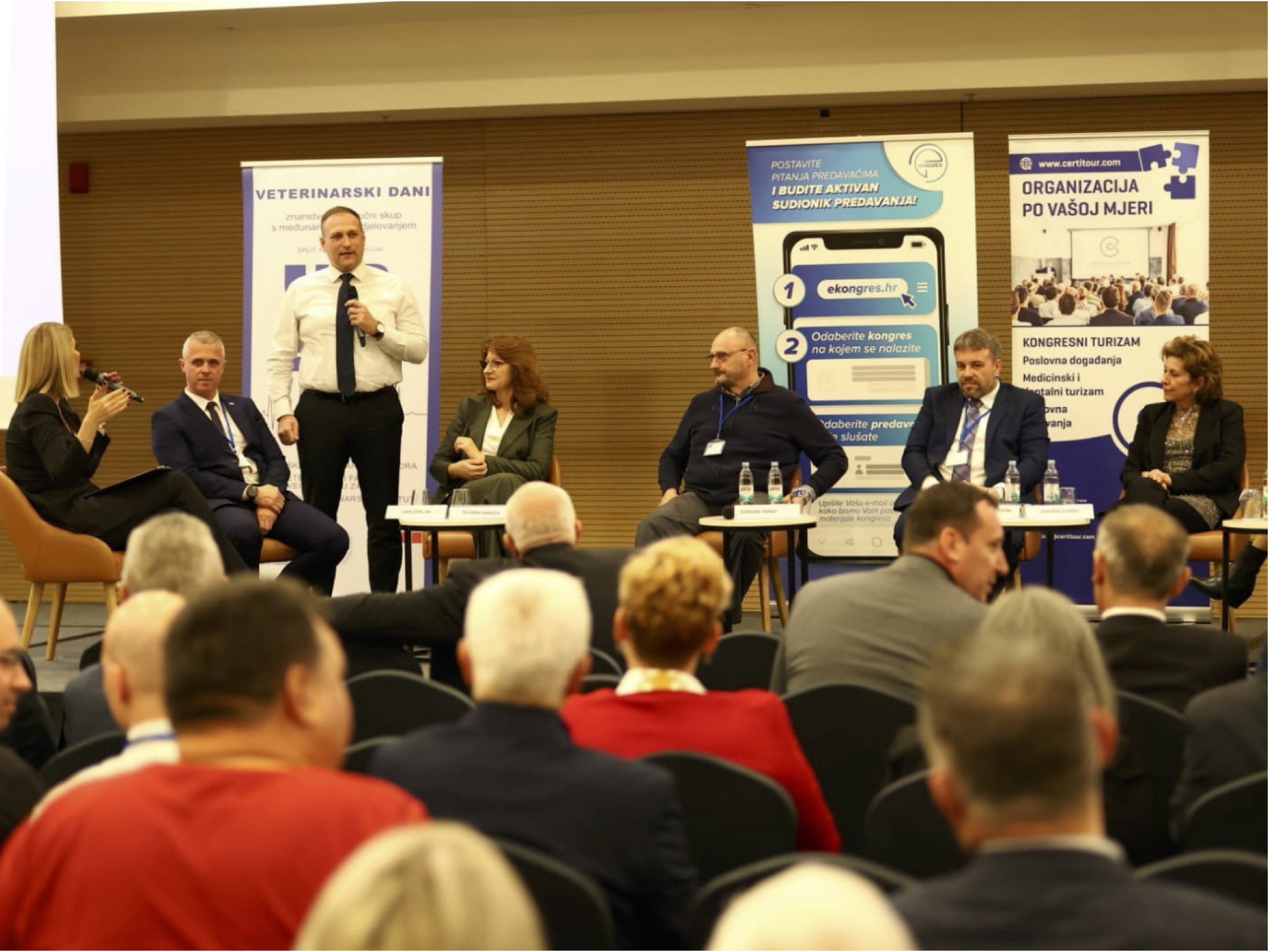The Croatian Veterinary Days 2025 were held on 7-9 November in Podstrana (near Split), jointly organized by the Croatian Veterinary Chamber, the Faculty of Veterinary Medicine, University of Zagreb and the Croatian Veterinary Institute. Considered the largest scientific and professional gathering of veterinarians in Croatia, it was attended by farm animal and small veterinary practitioners and others who are directly or indirectly involved in the veterinary profession.
Foot-and-mouth disease, African swine fever, anthrax…
In addition to scientific and professional topics, panel discussions analysed the state of the system for supplying veterinary services. 'The year 2025 has been an extremely demanding year for our profession in Croatia,' recalls Ivan Zemljak, director of the Croatian Veterinary Chamber. ‘First, with the prevention of foot-and-mouth disease after outbreaks in Hungary and Slovakia, then the implementation of preventive measures of peste des petits ruminants circulating in south-eastern Europe and finally, the control of African swine fever and anthrax outbreaks.
Veterinarians, ‘almost extinct’ in some areas
Manpower and remuneration of veterinarians in Croatia was an important topic at the congress. 'The Croatian veterinary profession is still among the lowest paid in the European Union,' Ivan Zemljak observed. Also, 'we are a profession that is almost extinct in some parts of the country, and our colleagues suffer from attacks and stress situations on a daily basis.'
Lack of young colleagues (and changing interests)
The roundtable discussion 'Status and Perspectives - The Reality of the Veterinary Profession in Croatia' furthermore highlighted the lack of young colleagues in smaller communities, and their loss of interest in fundamental parts of the veterinary profession, such as farm animal practice, jobs related to food safety and animal protection services. 'In addition, working conditions are often tough, and the pay does not fairly reflect the amount of effort put in.’
Lack of systematic care for vets in crisis situations
Another round table discussed whether there was a quality and timely response to all crises and health threats to animals. Practitioners emphasized the lack of systematic care for the veterinary profession in crisis situations. ‘The Law on Veterinary Medicine states that a veterinarian is obliged to provide a veterinary service, explained Ivan Zemljak. However, the current situation often prevents the implementation of this service.’
Lack of veterinary service personnel
In addition, practitioners do not have an official status, which means they cannot enter private property when they need to, for example to carry out measures to protect the animal and public health of animals. ‘While the competent institutions adopt measures to prevent and spread animal diseases, they too lack veterinary personnel. Veterinary inspectors need to be trained and prepared for new health threats — which we know will come due to climate change and migration.’
(photo ©Zoran Juginovic / MediaVet)
